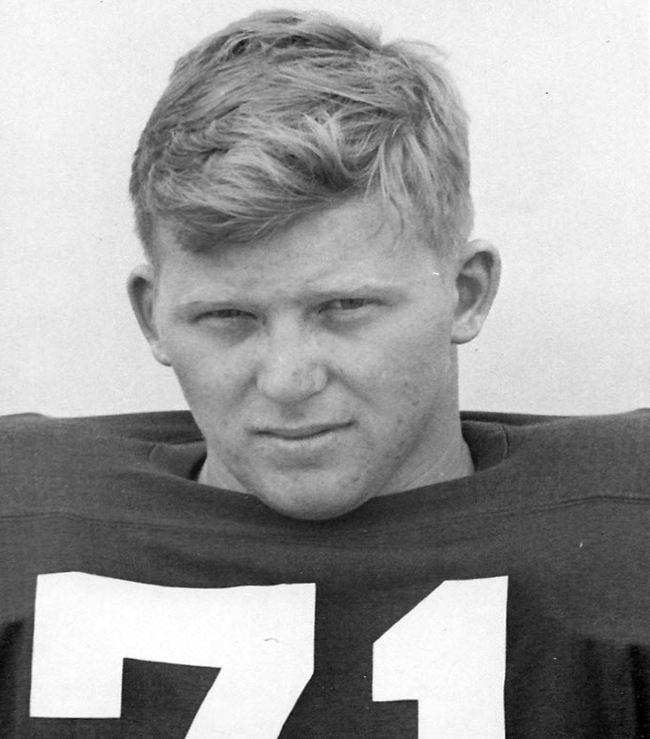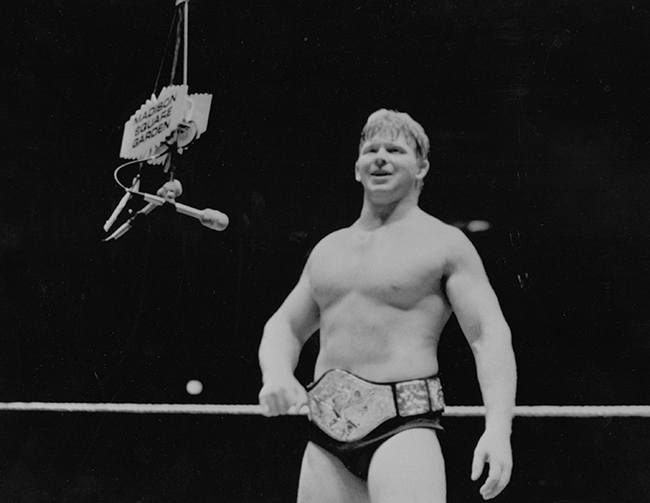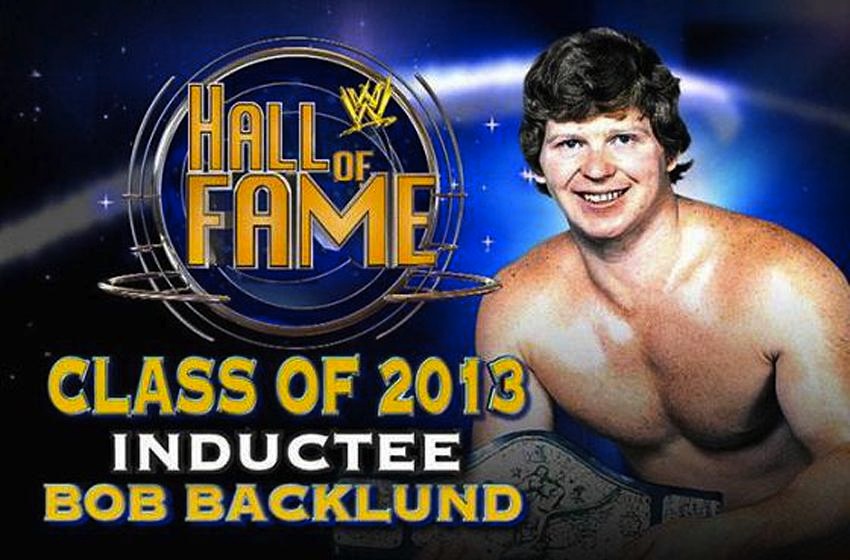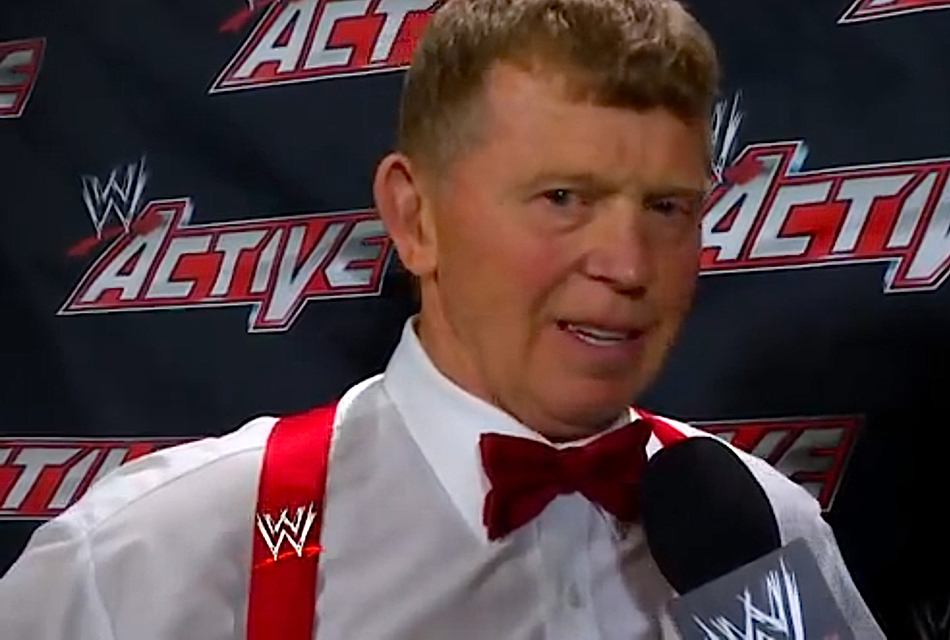Many professional wrestling fans remember Mister Bob Backlund as the All-American wrestler, turned heel, turned 1995 Presidential nominee. But people forget his illustrious and short-lived wrestling and football career at North Dakota State. We put Backlund in a crossface chickenwing (not literally) and had him answer some questions Bison fans and wrestling fans have been dying to ask the current author and motivational speaker.
The Conversation
Bison Illustrated – You’ve said before that every step in your life has evolved you into the man you are today. How did NDSU help shape Bob Backlund?
Bob Backlund – In high school, I played football, I wrestled, I was in track. My father wasn’t a very good drinker, and I went out for sports so I wouldn’t have to go home. But through the process of amateur wrestling in junior high and high school, I learned six principles that I lived by from the time I was a senior for the rest of my life. I went to Waldorf Junior College first. I played football and I wrestled. I was in track there. I left a big mark there, bigger than I did in high school. Then I transferred to North Dakota State. I was testing these principles to see if they’d work in life. And I used them there, and I did pretty darn well at North Dakota State also. Then in 1973, I was ready to go on the road in the wrestling business and everybody in my hometown said I’d never get ahead. I would never get anyplace. I’m not Mad Dog. I’m not The Butcher. I was just a kid. I didn’t believe any of that. I believed in these principles. I didn’t listen to them. I didn’t wonder. I knew I was going to succeed because of the things I learned in amateur wrestling.
How did your relationship start with legendary Bison wrestling coach Bucky Maughan?
Bucky Maughan knew me better than a lot of people. He knew me better than Ron Erhardt. His wife was from Princeton, Minn., which is my hometown. She had a brother that was on the wrestling team when I was there. Bucky Maughan came down to help his wife’s brother. He wrestled me when I was in 10th grade. He beat me up pretty bad. The next year, he came back and he saw how hard I worked. He said, “Who is that guy over in the corner there?” But because of the hard work that I was doing, and he saw I was working – and he saw the improvements – he wanted that guy on his wrestling team. When I got ready to get out of high school, he didn’t have much history at North Dakota State University, couldn’t talk Ron Erhardt to giving me a dual scholarship, so I ended up going to Waldorf Junior College in Forest City, Iowa.
What kind of impact did Bucky make in your life?
He worked hard to get me in. It wasn’t easy. He just knew how dedicated I was. You didn’t have to tell me, you didn’t have to tell me to do something after practice. I was already doing it. When I was a kid, I wanted to lift weights. My parents didn’t have any money. I got two five-gallon pails and I got a pipe that was six feet long and two inches in diameter. I put cement in the pails and put the pipe inside the pail in the cement. I came home from school and did the same thing. My first weight machine was two five-gallon pails with a pipe between it. I couldn’t get it off the ground. But I was going after things without being told. And he (Bucky) liked that. You didn’t have to preach to me. You didn’t have to tell me anytime. I was running around for an hour after practice at North Dakota State University. I was very into it and I was driven to out-work everybody and that’s what made me win in the wrestling business.

How did the level of expectations at North Dakota State help you in your professional career and your life outside the ring?
I’m more driven right now than ever. I did okay in life. At one time, I was on the path, rather than the future. What am I going to do after I got the championship in the WWF for six years? My life is better now than it ever was. I have a book. I’m out inspiring people, trying to get them to understand the principles and get them to utilize them in their life and, to me, that’s the most important thing I’ve ever done.
What’s your book, “Backlund: From All-American Boy to Professional Wrestling’s Champion” about?
I go through my whole life story. Basically, it’s about the six principles that I learned from high school and junior high school and how I utilize them through two colleges and how I went out into the world and climbed the ladder of success in a situation that was almost impossible for me to do that. I believe in this book. I signed autographs at the Madison Square Garden at the NCAA Tournament. A young man came over to buy a book and he looked at his dad, and his dad asked, “Are you going to read it?” And I looked at him and said, “I don’t want you to buy it if you’re just going to read it. If you’re not going to study it, just leave it here. You need to study it, you need to learn it and you need to do whatever it says in the book.”
He bought the book. I have his voicemail on the phone here about a month later he called and said, “I read the book. I’m definitely going to study it.” He called me back again and asked me a question about something and I told him, “Stick to your guns. Don’t change.” He didn’t have a problem, his brother did. He told his brother that. He called back about a month later after that and said, “It worked. He stuck to his guns and he got what he wanted.”
Are the stories like this why you felt compelled to write a book?
I wanted to get my story of my life, out to the world, in my words. Not anybody else telling me, “You can’t say that. You can’t say this.” That happened to me. “You can’t say that because it will hurt this guy.” That’s why when we were writing the book, Rob Miller, he wasn’t going to put the high school days in, but I told him, if I can’t put that in, I’m not going to do it because that’s where this book could help other people. The story of my life; what’s that going to do? The principles to put in somebody’s mind will work.
How does a national champion college wrestler become a professional wrestler?
I knew this guy, his name was Ross Johnson, and he was like the perfect kid. Perfect person. The only time we hung out together was when we were training together, but it was good. Anyway, he got leukemia and died before we got to high school. He became a good friend and I lost him. He wanted to play professional football, he had goals and everything, and I knew nothing about that. I wanted to obtain his goals.
I went to Mundelein (Illinois) and played one year of semipro football for the Chicago Bears. On my way home, I’d been there for a season, there had been guys that have been there for 10 years and they’re still there. I didn’t believe it was going to work. And I don’t know if you know this, but I met Billy “Superstar” Graham at the YMCA in 1971 in Fargo, North Dakota. I thought about that a little bit and said, “You know what? I’m going to try wrestling.”
By the time I got home from Illinois – I got to Princeton (Minn.) – I had my mind set. I had a gym I was going to go to in Minneapolis. It was called the 7th Street Gym and that’s where a lot of the wrestlers worked out. So I got a membership and started training there. There was a day there I was down doing bench presses and the guy who ran the gym, his name was Eddie Sharkley – he’s still living in Minnesota now – and I saw him at Verne Gagne’s funeral. He said, “Geez, you ever think about getting in the business?” And that was the dream come true, because that’s what I wanted to have happen when I got a membership at that club, to get into professional wrestling.

You’re still involved in professional wrestling as Darren Young’s “life coach.” Do you still have an itch to get back in the ring?
No, I have the itch to motivate people. I have an itch to send a message to people and inspire them, through a book. He’s just a part of it. I’m trying to mentor him and get him on a strong road. He’s a great person. He got a little down mentally, as far as some things happening to him, but he’s fighting back now and he’s going to come back bigger than ever. It’s just part of my life, and part of what I’m doing. I’m mirroring what Jack LaLanne used to do with fitness and training. He had a blender and some vitamins. I got a book and a lot of willpower. That’s my goal. To get to that level, as far as a motivational person. I walk the walk. I don’t say one thing and go out and do another. I don’t cheat. There’s a lot of athletes who say one thing and they don’t back it up at all.
Last question has to be the toughest. Greater accomplishment: NCAA champion or WWF Champion?
Boy, that’s a tough one. I wasn’t seeded at all (in college). That year, we played a Bowl game, and we played it late in the year, it was January 9, I think. Half the (wrestling) season was over. They went to seed me, I was the bottom guy and I beat the champion. That was a moment in my life that it was almost like a professional wrestling story. I remember walking off the mat, and Bucky Maughan coming toward me and I caught him under the armpits and I threw him up in the air.
I also met Billy “Superstar” Graham in Fargo, North Dakota and he asked me about training and asked me about getting in the business, I did it. A few years later, I’m standing in Madison Square Garden looking across at my opponent and he’s got the WWF Championship belt around his waist and I’m going to get it from him, and it’s Billy “Superstar” Graham, the guy I met in Fargo, North Dakota. It doesn’t get much bigger than that, either. I got to rank them both high in my totem poll in terms of best ever thing happening to me.





